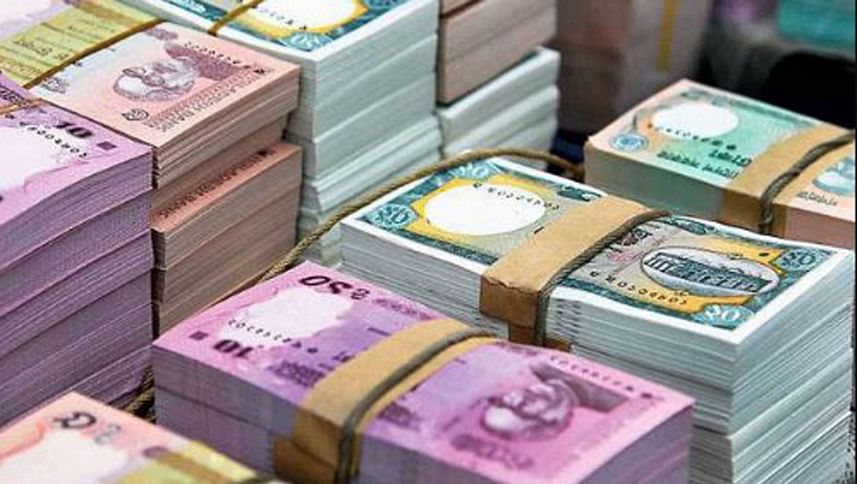Financial account off to a gloomy start

Bangladesh's financial account witnessed deficit in the first month of the new fiscal year, signaling that the pressure on the foreign exchange regime will continue.
In July of 2023-24, the financial account of the balance of payments (BoP) registered a deficit of $895 million, way higher than a deficit of $66 million recorded in the same month in the last fiscal year, data from the Bangladesh Bank showed.
The financial account covers claims or liabilities to non-residents concerning financial assets and its components include foreign direct investment, medium and long-term loans, trade credit, net aid flows, portfolio investment and reserve assets.
The financial account was $2.1 billion in deficit at the end of fiscal 2022-23, in contrast to $15.5 billion in surplus a year earlier
A lower short-term foreign borrowing by the private sector and the declining balances in nostro accounts maintained by commercial banks with foreign banks are to blame for the reversal in the financial account in the space of a year, according to bankers.
The financial account was $2.1 billion in deficit at the end of fiscal 2022-23, in contrast to $15.5 billion in surplus a year earlier.
In July, short-term foreign debt in the private sector stood at $13.38 billion, down 2 percent from $13.65 billion in June, according to the BB. In January, the figure was $15.58 billion.
The financial account deficit persisted in July largely because of a $1.07 billion shortage in the "other investment (net)" segment of the BoP. It was a negative $266 million in the same month a year earlier.
In contrast, the gross flow of foreign direct investment rose 5.65 percent to $505 million. The net portfolio investment was $2 million in negative in July from $32 million a year earlier.
Zahid Hussain, a former lead economist at the World Bank's Dhaka office, recently told The Daily Star that foreign lenders had lost their confidence in Bangladeshi companies as the country's forex reserves continue to fall.
He said fresh disbursement of foreign loans was lower than repayments, so the financial account slipped into the negative territory after a long time.
The trade deficit, which takes place when imports surpass exports, narrowed to $635 million in July from $2.1 billion in the identical month of FY23, on the back of higher shipments and lower purchases from international markets.
Export was up 17.43 percent year-on-year in July while import dropped 14.92 percent.
Import payments have fallen mainly due to the austerity measures put in place by the government and the central bank to stop the depletion of the forex reserve, which has fallen by about 25 percent in the last one year.
A shortage of US dollars and a lingering gas crisis have also prompted many businesses and industries to slashed imports and put their investment and expansion plans on hold.
But Hussain said: "It will not be possible to continue with the import curbs year after year, so stakeholders need to take measures on how to improve the financial account."
The noted economist pointed out that there is huge mismanagement since the monetary policy, the exchange rate policy and the fiscal policy did not work to address the issue.
The current account balance returned to the positive territory at $537 million from a negative $449 million in July of FY23, central bank figures showed.
The country's overall balance was $1.07 billion in negative in July of FY24, a slight improvement from $1.08 billion in the same month of FY23.

 For all latest news, follow The Daily Star's Google News channel.
For all latest news, follow The Daily Star's Google News channel. 



Comments